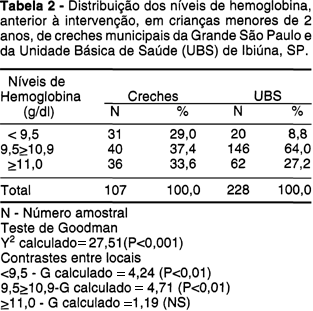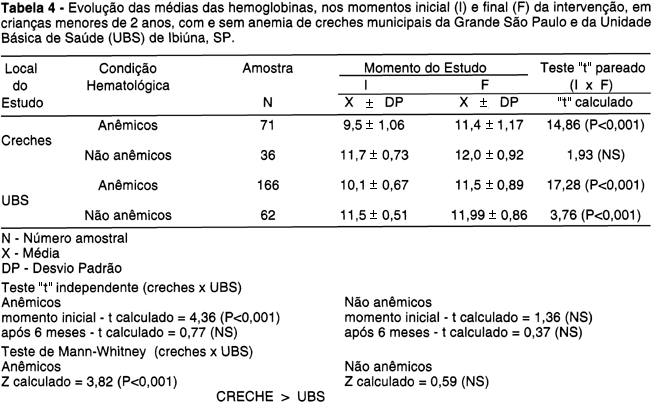The impact of the use of fortified powdered whole milk (9 mg of iron and 65 mg of vitamin C/100 g of milk) on the hemoglobin levels of children under 2 years of age was evaluated, overa period of 6 months, in 107 children enrolled in municipal Day Care Centers (DCC) and in 228 seen at a Basic Health Care Unit (BHCU). Before the beginning of the intervention, 66.4% of the children in the DCC and 72.8% of those seen at the BHCU had hemoglobin levels under 11.0g/dl. After 6 months of fortified milk intake, these percentages fell to 20.6% and 18.0% respectively. The average hemoglobin before the intervention was 10.3 g/dl in the DCC and 10.5 in the BHCU. After 6 months these increased to 11.6g/dl in the populations studied. Concerning the nutritional condition, evaluated according to Gomez's criteria, 57% of the DCC children presented an improvement, 41.1% showed changens and only 1.9% became worse. In the BHCU, 11.4% presented better condition, 70.6% remained the same and 18% worsened, which demonstrated differences in response regarding improvement of nutritional condition, when fortified milk was used in closed and open environments. The authors conclude that the utilization of enriched foods is an excellent alternative in the treatment of iron deficiency in populations of children under 2 years of age.
Food, fortified; Milk substitues; Anemia,iron-deficiency; Hemoglobins









